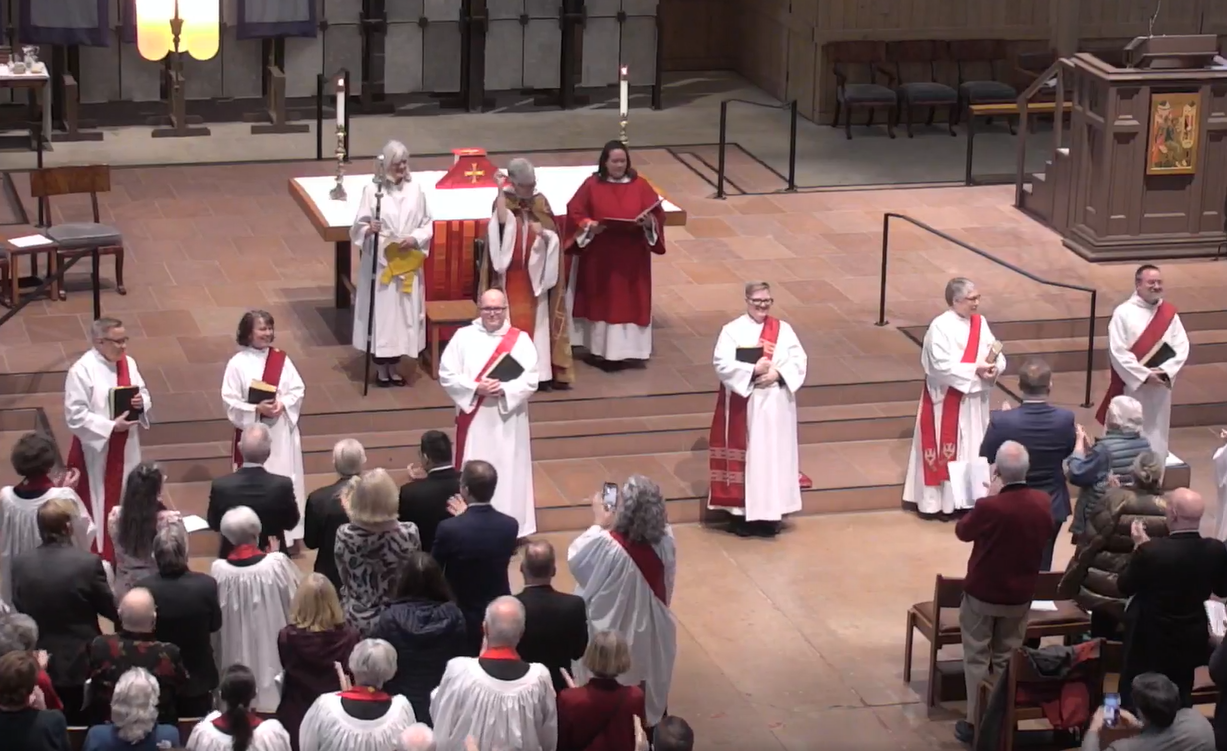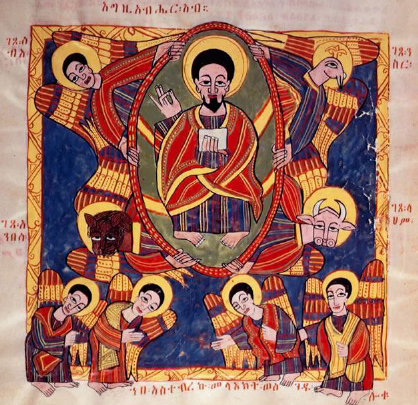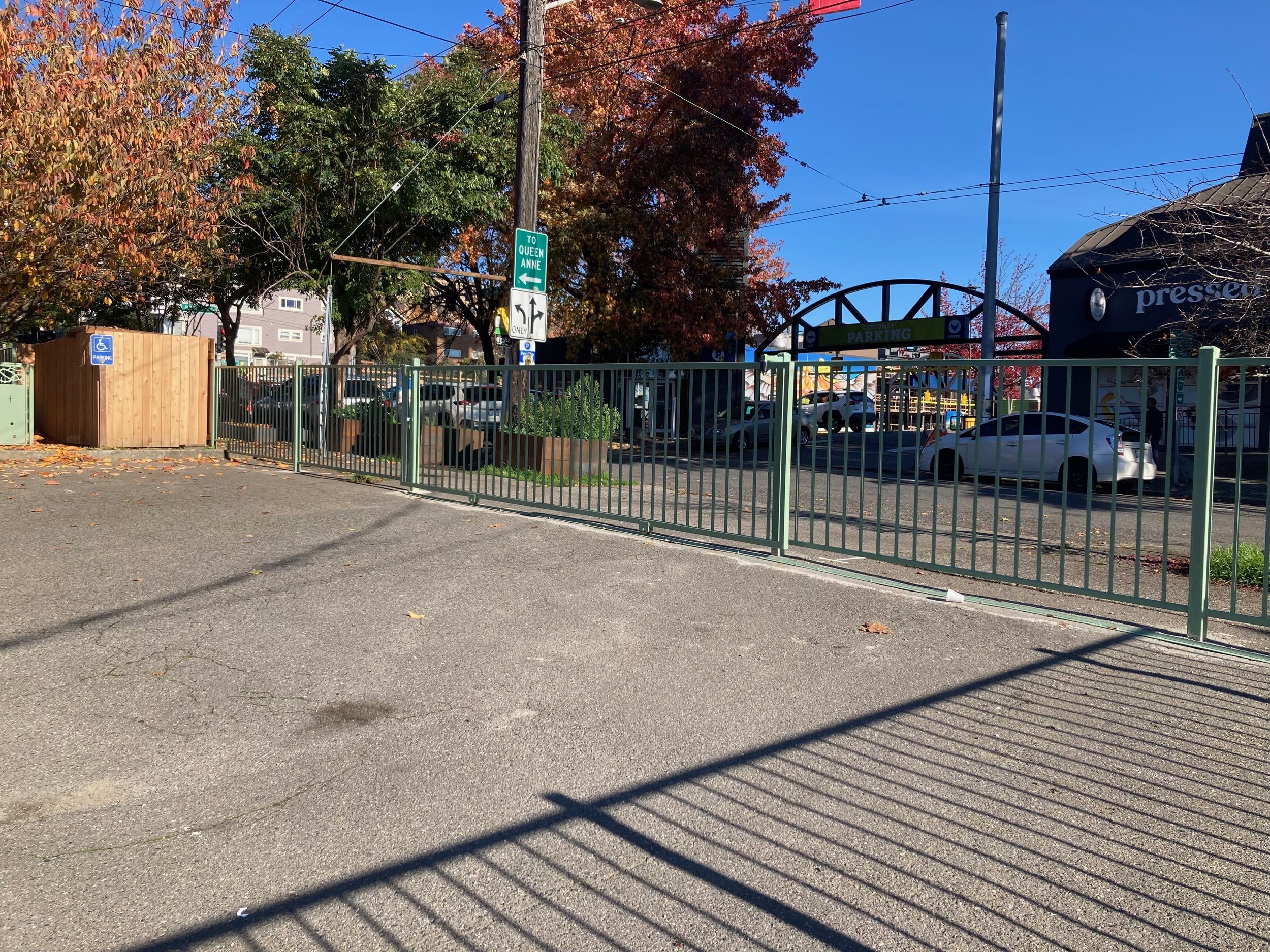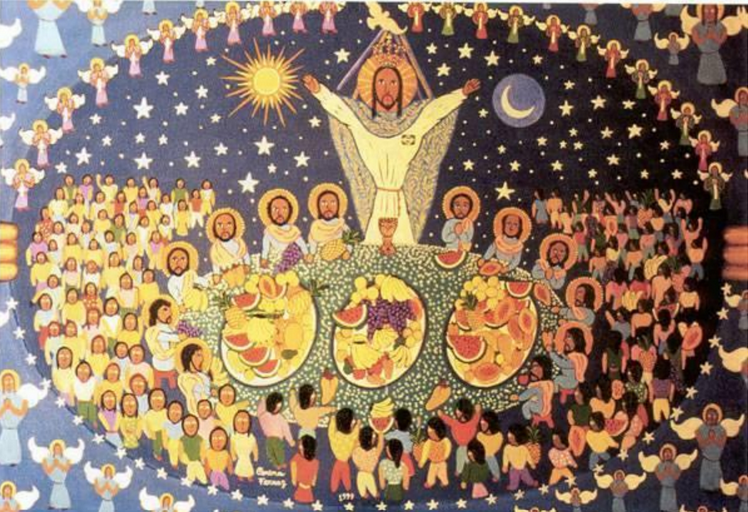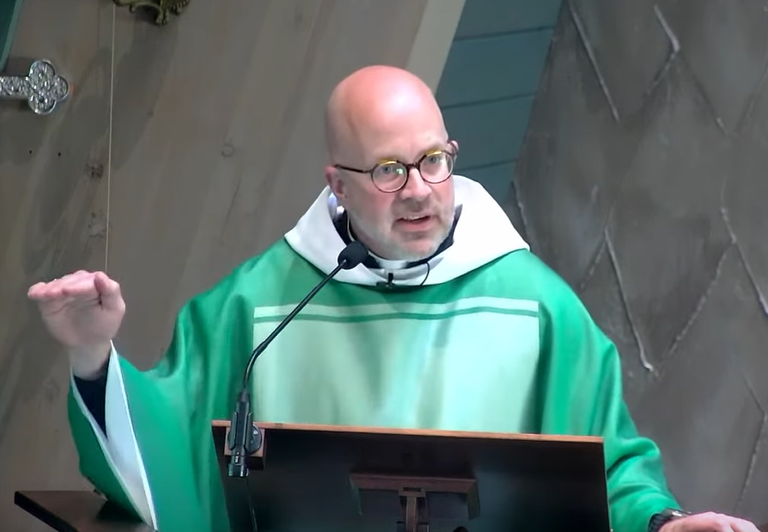Preached on the Fourth Sunday in Advent, Year A, December 24, 2023, at St. Paul’s Episcopal Church, Seattle, Washington by Laurel Tallent.
2 Samuel 7:1-11, 16
Psalm 89:1-4, 19-20
Romans 16:25-27
Luke 1:26-38
The Annunciation, by Henry Ossawa Tanner
Today we witness a short, intense vignette: An unexpected guest, a dramatic announcement, a young woman’s simple question, punctuated by her agreement to participate in a divine plan that will turn the world on its head. Like a purposefully vague but intriguing opening scene to a movie, this scene isn’t providing us much information. Why does she agree so quickly? Her only question is an essentially logistical question: “How”. In Luke’s account, Mary doesn’t ask “why” this plan should be put into motion, or even what the plan implies for the world. I believe that Mary must know more.
I do not like the Christmas song “Mary did you know”. It was released to the masses in 1991, written by Mark Lowry and Buddy Greene of the Gaither Vocal Band. Since then it’s topped Christian Music charts, and been covered by many, many other artists since. The song asks a series of patronizing questions. “Mary did you know that your baby boy will give sight to the blind” “Mary did you know that your baby boy will calm a storm with His Hand?” No. No she didn’t.
I’m not alone in my annoyance. Others have also pointed out its inherent sexist underestimation of Mary - a pitfall for many artists throughout the ages. Mary is often depicted innocent and unknowing because of her youth and virginity, As a Baptist theologian put it “Could you imagine a song asking Abraham 17 times if he knew he’d be the father of a great nation?”
In order to understand the scene between Mary and Gabriel, to understand what Mary knows, we must consider the two events that Luke sets around it: Gabriel foretelling the birth of John the Baptist to Zechariah, and the song Mary sings when she is greeted by a pregnant Elizabeth.
Let’s turn to the passage before Gabriel meets Mary. This is the beginning of Luke, before we ever meet Mary: a righteous, established, childless priest, Zechariah, is selected by lots to enter the temple and offer incense as a crowd prays outside. While in the temple, Gabriel surprises him, and tells him the good news: Your wife, Elizabeth, who has never conceived in the years - perhaps decades - you have been married, will give birth.
Gabriel says this baby will be a personal joy and delight to the older couple and their community. (I’ll note here that Mary was not given this comfort) Their son John will prepare the people, returning them to their God. This should be unparalleled good news. Could a man dedicated to righteousness receive a bigger blessing than this? But Zechariah questions Gabriel. Similar to Mary, he asks “How”. In response, Gabriel silences him, and Zechariah emerges from the temple unable to speak. Why is the same question met with different consequences? We may hear part of the answer in Mary’s song.
We return to Mary, having quickly traveled through hill country to visit Elizabeth. The two women, relatives and miraculous parents-to-be, reunite with joy. The impossibility of prophecy and biology are coming to fruition through them. This is where Mary tells us what she knows, what she knew, when Gabriel came to visit. She is bursting at the seams, elated. She sings about her new, unexpected promise of a legacy: “He has looked with favor on the lowliness of his servant, surely all generations from now on will call me blessed”. She continues, “He has brought down the powerful from their thrones, and lifted up the lowly; he has filled the hungry with good things, and sent the rich away empty”. Her child will subvert existing systems of power. God is keeping a promise to God’s people, and Mary has accepted a pivotal role in the promise’s fulfillment.
The song “Mary did you know” asks Mary “did you know that your baby boy will save our sons and daughters? … That the baby boy will one day rule the nations?” Luke’s account shows us that Mary not only knows, but can also sing a more articulate and powerful song on the meaning of her pregnancy and parenthood.
If we can suspend our own knowledge of what will happen, those “did ya know he’s gonna walk on water” questions from the song, perhaps we can join Mary in this moment: Unaware of the particulars, but awake to the glorious disruption that her child will incite.
In other words, *this* is the beginning of Luke: two women, pregnant by miraculous means, understand an angel’s message, while the priest, the person who should have understood immediately, is silenced until he is prepared to participate.
This is not a story about how “God asks us to do hard things sometimes”. This is the story of a young woman who understood and said “yes” to God’s plan of justice faster than the person who should have understood it first. It is the first role reversal of Luke’s gospel, foretelling all of the reversals to come; the child teaching at the temple, the sinners welcomed to the table, the unclean cleansed, the sick healed. The beatitudes begin here, with the song of a young woman one step into a life-long undertaking.
Mary’s immediate understanding and Zechariah’s period of imposed silence resonate with me because it all feels cathartic. When we look for someone who understands the condition of the world today, who says “yes” to God’s intervention in the world, whom do we look to? As it was in the beginning of Luke, so it is now: the young, the very old, the insignificant, the marginalized, are still the first to understand how systems of oppression operate. They are the first to identify bold, transformative solutions. They are the first to articulate the consequences of action and inaction. Meanwhile Zechariah, by no means an antagonist, but not the herald he could be, holds back from joining by asking “how? How?”. Happily, Zechariah provides us with a redemptive example himself: when given the opportunity, he echoes Mary’s song with his own. Even late, and even after many months of silence, it is a welcome song. It is a good and powerful song.
What song will you sing, when God greets you unexpectedly? What song will you sing, when God calls you to join them in something different, something new?





